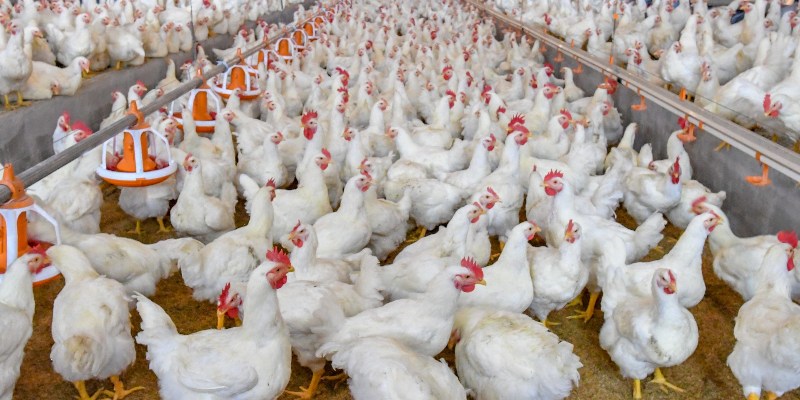
How do poultry farmers in Nigeria raise 1,000 broiler chickens?
Poultry farming is one of the most lucrative agricultural ventures in Nigeria. With a rapidly growing population and increasing demand for meat, raising broiler chickens has become an attractive option for many aspiring farmers. This article will explore how poultry farmers in Nigeria raise 1,000 broiler chickens, highlighting key industry developments and equipment suppliers that facilitate this process.
Nigeria Chicken Industry Development
The Nigerian chicken industry has seen significant growth over the past decade. As urbanization increases and consumer preferences shift toward protein-rich diets, the demand for chicken meat has surged. The country’s poultry sector is now considered a vital component of its agricultural landscape, contributing to food security and providing employment opportunities.
Several factors have contributed to the growth of the chicken industry in Nigeria. First, the government’s support through policies and programs aimed at boosting local production has been instrumental. Initiatives such as the Agribusiness and Small-Scale Enterprises Scheme (AGSMEIS) provide financial assistance and training to new farmers, enabling them to enter the market with better knowledge and resources.
Second, the rise of agribusiness startups has introduced innovative technologies and practices that help farmers maximize their output. These advancements have made it more feasible for farmers to raise 1,000 broiler chickens in Nigeria efficiently and effectively. Additionally, the establishment of local feed mills has reduced costs associated with chicken feed, making it easier for farmers to maintain healthy livestock.
However, despite these developments, challenges remain. Issues like disease outbreaks, fluctuating feed prices, and inadequate infrastructure can hinder the progress of poultry farmers. Therefore, understanding best practices and utilizing the right equipment is crucial for success in this competitive industry.
Start a 1,000 Broiler Chickens Farm in Nigeria
Starting a poultry farm to raise 1,000 broiler chickens in Nigeria requires careful planning and execution. Here are some essential steps to follow:
1. Choose the Right Location
Selecting a suitable location is critical for poultry farming. Look for areas with good access to markets, clean water sources, and adequate space for housing chickens. Proximity to suppliers of feed and equipment can also reduce logistical challenges.
2. Create a Business Plan
Developing a comprehensive business plan is vital. This plan should outline your goals, target market, budget, and operational strategy for raising 1,000 broiler chickens in Nigeria. It will serve as a roadmap for your farm’s growth and a tool for securing funding.
3. Obtain Necessary Permits
Before starting operations, ensure you have obtained all necessary permits from local authorities. Compliance with regulations is essential to avoid legal issues that could disrupt your business.
4. Construct Appropriate Housing
Proper housing is crucial for the health and growth of broilers. Design a poultry house that provides adequate ventilation, protection from weather elements, and easy access for feeding and cleaning. Space should be sufficient to accommodate 1,000 birds comfortably, allowing for proper movement and minimizing stress.
5. Acquire Quality Chicks
Purchase day-old chicks from reputable hatcheries. Choosing high-quality breeds ensures better growth rates and lower mortality rates. Keep in mind that the choice of breed can significantly impact your overall productivity.
6. Feed and Nutrition
Feeding is one of the most critical aspects of raising broiler chickens. A well-balanced diet tailored to the bird’s age and weight is essential for optimal growth. Ensure that you have a reliable source of feed and consider formulating your own if possible, to reduce costs.
7. Health Management
Maintaining the health of your flock is crucial. Implement biosecurity measures to prevent disease outbreaks and regularly consult with veterinarians for vaccination schedules and disease management plans. Monitoring the health of your chickens will help you address any issues promptly.
8. Record Keeping
Effective record keeping allows you to track the performance of your flock, including growth rates, feed conversion ratios, and health records. This data is invaluable for making informed decisions and improving future production cycles.
Best Broiler Equipment Suppliers in Nigeria – Livi
To successfully raise 1,000 broiler chickens in Nigeria, access to quality equipment is essential. One of the leading suppliers in the country is Livi. They offer a wide range of poultry farming equipment designed to enhance productivity and efficiency.
Why Choose Livi?
Livi specializes in various types of poultry equipment, including feeders, drinkers, heating systems, and automated control systems. Their products are designed based on international standards, ensuring they deliver excellent performance in Nigerian conditions.
Some of the benefits of choosing Livi include:
- Durability: Their equipment is built to withstand the rigors of daily use.
- Innovation: Livi continuously updates their product line to incorporate the latest technology, which aids farmers in maintaining optimal conditions for their flocks.
- Support Services: They provide after-sales support, including installation and maintenance services, which are crucial for any farmer looking to raise 1,000 broiler chickens in Nigeria successfully.
Conclusion
Raising 1,000 broiler chickens in Nigeria is an achievable goal with the right planning and resources. The rapid development of the Nigerian chicken industry presents numerous opportunities for new farmers to enter the market. By choosing the right location, constructing suitable housing, acquiring quality chicks, and ensuring proper feeding and health management, aspiring poultry farmers can build successful ventures.
Moreover, partnering with reputable equipment suppliers like Livi can significantly enhance operational efficiency and productivity. With their state-of-the-art poultry equipment, farmers can streamline processes and focus on maximizing their yield.
As demand for chicken meat continues to rise in Nigeria, there has never been a better time to engage in poultry farming. By implementing best practices and leveraging modern technologies, farmers can not only meet market demands but also contribute to the nation’s food security and economic growth.

